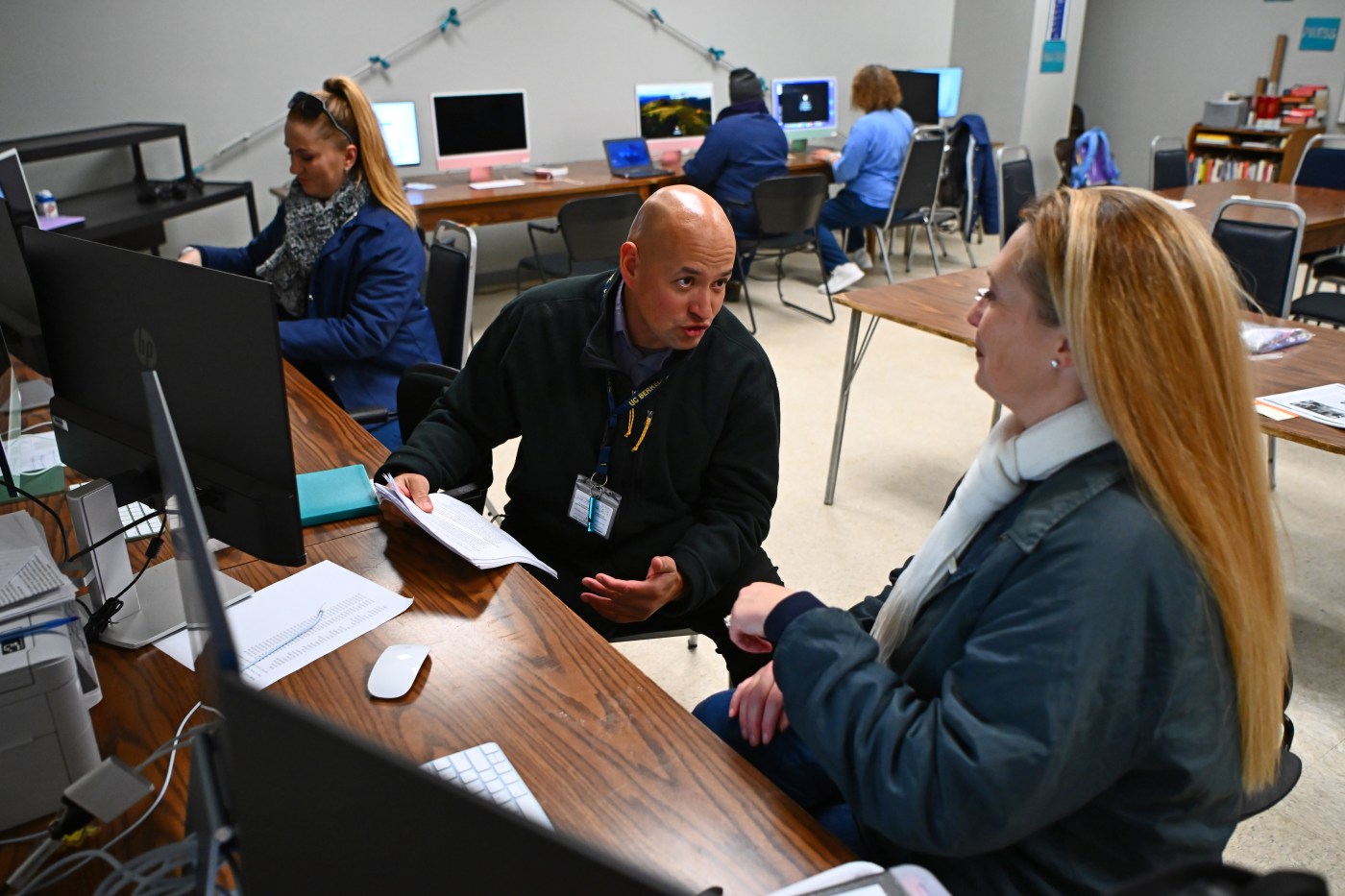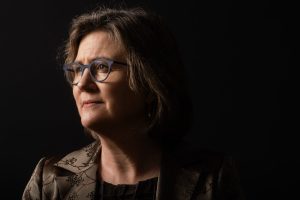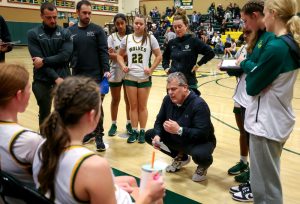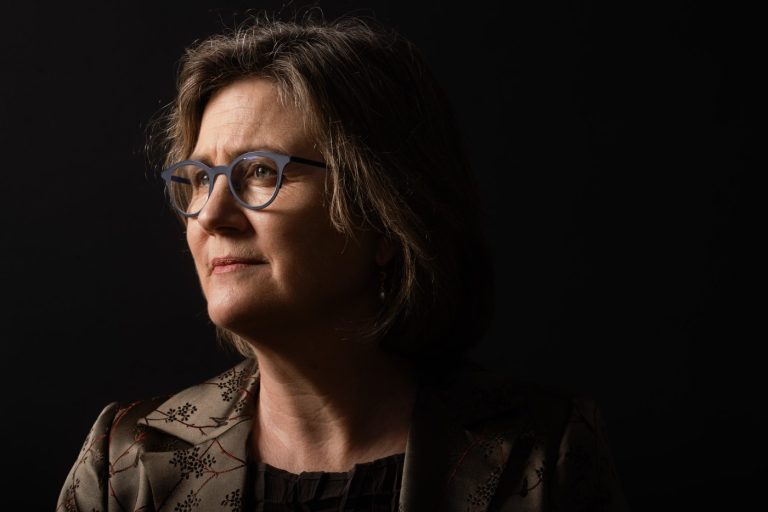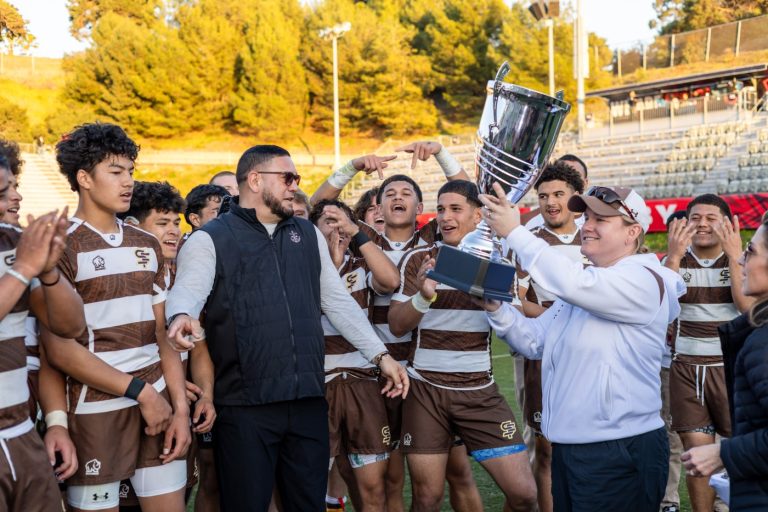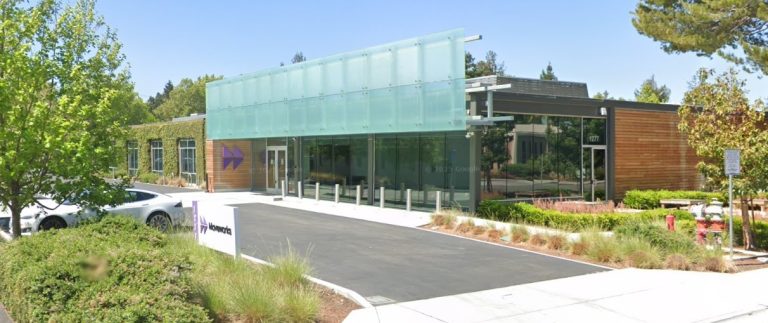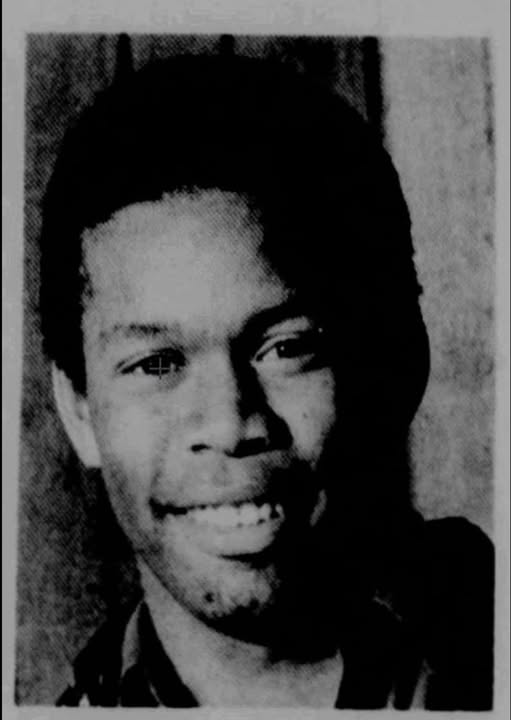In a warehouse-style room at the Central California Women’s Facility outside Chowchilla, Jesse Vasquez stood before a group of very attentive women in prison-issue denims.
They were prospective applicants for CCWF’s pioneering new newspaper, put together in a newsroom next door, and Vasquez told them how learning the fundamentals of journalism could transform their lives, whether they remain in custody or ever go free.
Not too long ago, Vasquez was incarcerated himself with two life sentences for an attempted murder that occurred when he was 17. His final years in prison were spent at San Quentin, where he served as editor-in-chief of the San Quentin News. He gained valuable life and professional experience reporting stories and managing a staff of fellow felons.
Since Vasquez’s parole in 2019, he has worked with other prison reformers to establish The Pollen Initiative. With its metaphorical title, the nonprofit aims to cultivate media centers in prisons throughout the United States, believing that the criminal justice system will become more rehabilitative when incarcerated people can share their stories and have a say on prison policy.
Pollen Initiative executive director Jesse Vasquez is photographed in front of a mural at the Central California Women’s Facility in Chowchilla, Calif., on Friday, Jan. 3, 2025. (Jose Carlos Fajardo/Bay Area News Group)
Through the nonprofit, Vasquez continues to work with the San Quentin News and has expanded to Pelican Bay and Mule Creek state prisons and now to Chowchilla. He wanted to give voice to incarcerated women who make up only about 4% of the California Department of Corrections and Rehabilitation total population. He worked with the CCWF’s warden, public information officer and inmate advisory council on launching The Paper Trail in March 2024 – so named for the “paper trail” the women hope to leave as they write “the first draft of history” of their time at the institution.
The Paper Trail is the first media center at a women’s prison in the United States — and there’s a podcast still to come. The newspaper’s team of editors and writers, some serving life sentences for murder, released their first monthly print and online editions in September. They’ve published stories on getting rare fresh produce through a new on-site farmers market, the debate about prison work requirements raised by Prop. 6, the black market in ice cubes on hot days and the real meaning of accountability.
“Writing is a passion for me,” said news editor and one-time Los Gatos resident Delina Williams. “It’s being able to utilize the skills that I had in the youth of my life and put some things out there that I think will touch people’s hearts.”
As Vasquez told the prospective applicants, working for the newspaper is a privilege, not just for talented writers, but for women who’ve stayed out of trouble and made progress on dealing with the crimes and traumas that led to their imprisonment. “Gaining insight into your personal life is kind of like finding your nut graph for your story,” Vasquez would say later.
Pollen Initiative executive director Jesse Vasquez speaks to candidates to be selected to work for the Paper Trail newspaper at the Central California Women’s Facility in Chowchilla, Calif., on Friday, Jan. 3, 2025. The Pollen Initiative is a nonprofit organization dedicated to cultivated prison newspapers and media centers, so that incarcerated people can shed light on the prison system in California. (Jose Carlos Fajardo/Bay Area News Group)
He warned them that they’d need thick skins, because they’d be in the public eye, both in the “fish bowl” of the 2,100-person facility and among people in power. But the rewards could be immeasurable. Not only would they feel pride in seeing their bylines, they’d grow personally by learning to see the world through the lens of ethics and fairness.
“Your responsibility is to pursue the truth,” he said.
When Vasquez was done with his presentation, he asked how many still wanted to apply, and nearly every woman’s hand shot up.
Now, Vasquez is talking about his more than 18 years in custody and his vision for a more humane criminal justice system
Q: You went into prison as a teenager. How did you get an education?
A: (More informally) it was through literature, history, the poets, the classics and a lot of novels. Jane Austen is probably my favorite author. But I got a GED in 2010 when I got transferred to a level-three institution, and I started some college correspondence courses.
Q: I imagine that all the time you were in, you had an attorney working on ways to get your sentence reduced.
A: No. You know there’s two things that you can do (after you’re sentenced). You can keep fighting, and there’s the emotional roller coaster. For me, I learned to accept the fact that some things are not going to change, and I’m OK with that. It’s not a Buddhist principle, it’s just common sense, right? For the first 12, 13 years, I was a screw-up in the prison system. Like, I was not the type of person that I would feel safe letting myself out.
Q: When you sought to transfer to San Quentin, was working on the paper something you were thinking about?
A: I wanted to go there, because they had the only on-site college program. Then I wanted to participate in the paper in some capacity. But my first main goal was my personal development.
Q: What were some of the stories you were proud of at San Quentin?
A: One was about this thing called the California Victim Compensation fund. A lot of that money just sits there, because it’s only allotted to the victims upon request, and they may not know about it. The incarcerated read (my) stories, and they were like, “Dude, I reached out to my victims’ families and told them, ‘Hey, I paid $10,000. You should get this money.’”
Q: Your work on the San Quentin News brought you to the attention of people on the outside who advocated for your release. When you got out, were you already thinking of starting something like the Pollen Initiative?
A: My first thing was just figuring out the world as a whole. I had the aspirations to set up media centers, but I had no idea how to run a nonprofit. So I got a job working at a nonprofit, so I could learn the mechanics.
Q: You were still at San Quentin when you got the idea of starting a center at a women’s prison. How did that come about?
A: When I become editor-in-chief, I’m seeing all these letters coming from CCWF, of women being taken advantage of, of women being overlooked. There’s currently 157 women in California with life-without-parole sentences. About 70% of them are there because of something that their boyfriend or their husband did and that they were an accomplice to. … It’s that type of injustice that is unbearable to me. I wanted the women to have something that was of equal value and equal opportunity to them.
Q: Can you talk more about how learning news writing and the principles of journalism help with personal development?
A: Individuals inside of prison are not there because we learn to follow directions. So how do we use the editing process as opportunities to teach people humility? In the context of basic editing, we’ve noticed that we’re also teaching how to communicate with individuals of different cultures and different viewpoints. One participant is African American. She hates white people, she hates white women, and she hates white editors. So it’s like, all our volunteers are white, homie. If you want to be a writer, you’re gonna have to work with these people. So it took her about maybe four months to finally realize, “Oh damn, my writing is looking better.”
Being a journalist also means you’re curiosity driven but also factually oriented. There’s no job in prison where you get exposure to a professional environment like you would in a newsroom, with the goal of producing a publication or website and seeing things through.
Name: Jesse Vasquez
Age: 41
Position: Executive director, the Pollen Initiative
Residence: Oakland
Five things about Jesse:
— He has a 3½-year-old Labradoodle who occupies the majority of his free time.
— In 2022, he received an award from Mount Tamalpais College for public service in criminal justice.
— In May of 2023, he was appointed to the governor’s advisory council to help inform the transformation of San Quentin and develop a scalable model of rehabilitation.
— In 2024, the Pollen Initiative expanded to three prisons to provide multimedia training.
— He rollerblades and does stand-up paddle boarding with his dog.
